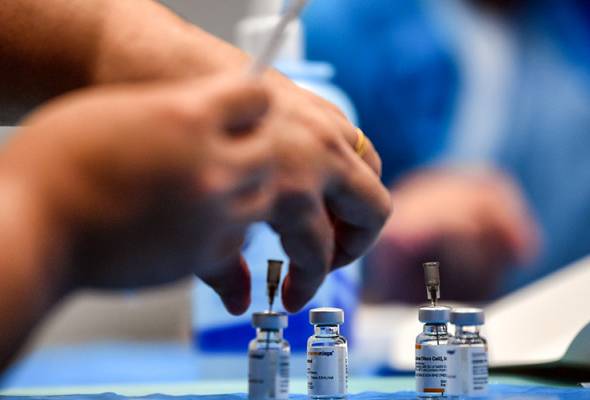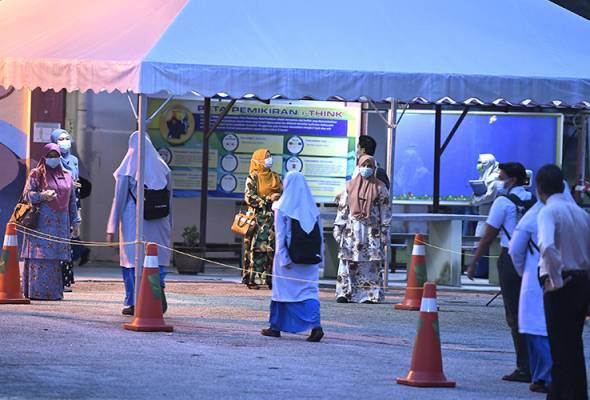
Published in Business Today, Astro Awani, The Star, Asia News Today, CodeBlue, New Straits Times & theSundaily, image by Astro Awani.
Through the article titled “Are we easing movement restrictions a little too soon?” on July 21, EMIR Research warned that a significant portion of the population could have a relatively significantly lower antibody level.
We also mentioned potentially uneven levels of protection due to inoculation with different types of vaccines that could be unprepared to take on the rising spread of virus, particularly from the dominant Delta variant, currently.
As of August 8, only 37.7 per cent of the Klang Valley population has been fully vaccinated, with clear vaccine disparity as nine other states have fully vaccinated population well below 25 per cent.
Keep in mind that the protective impact of a certain percentage of vaccinated population is directly tied to the effectiveness of the vaccines as well as infectivity rate.
Also, a much bigger vaccinated population target may be required prior to Phase transitions and easing restrictions.
Further, growing evidence that vaccinated people may also carry and transmit means the traditional herd immunity definition is no longer valid.
Therefore, the future definition appears to be herd immunity against severe disease. But, breakthrough infections and future variants could threaten even this outlook.
The Centers for Disease Control and Prevention (CDC) has pointed to published studies indicating Delta to be clearly more infectious and likely to cause more severe disease than Alpha when comparing vaccinated versus unvaccinated groups.
The CDC also referred to studies indicating that for those fully vaccinated, effectiveness in preventing infection and symptomatic disease is lower for Delta compared to Alpha, but similar for hospitalisations and deaths, although this may differ between different vaccine types.
Thus, the indicator of the number of patients in severe categories and ICU admissions may be affected as well, though to a lesser degree than the indicator for daily cases.
The use of such indicators re-emphasises the importance of managing disease progression, whereby large-scale early intervention is key.
Additionally, we should expand this into considering other drugs, and not put all our options in one vaccine basket.
It was reported that Singaporean researchers using an artificial intelligence platform had identified antiviral drug Remdesivir, together with lopinavir and ritonavir as the “cocktail” to treat Covid-19 patients with mild to moderate disease and that it has also shown promising results in terms of effectiveness against the Beta and Delta variants.
Malaysia’s current protocol have already considered these exact drugs, though Remdesivir is not available here yet. We should speed up and scale up on-going clinical trials (such as Ivermectin) and other drugs for early intervention, and not simply wait until we’ve exhausted all already-approved methods.
Fully vaccinated individuals in Phase 2 are also said to be allowed to cross-district, dine-in, and even engage in same-state tourism as long as one has a digital certificate of Covid vaccination.
Though authorities have not recommended antibody measurements, thepolicy assumes vaccination certificate to mean immunity passport, despite the immunological uncertainties.
We would like to reiterate concerns that in addition to potential difference in the level of protection by different vaccines, not all those vaccinated may be immunised and there is risk of waning immunity.
We mentioned before that fully vaccinated people can be carriers too, especially in the absence/insufficient mucosal immunity. If they are exposed to non-protected individuals, they could be sparking sporadic and cluster cases in unprotected communities.
Recent findings by the Public Health England (PHE) and CDC greatly support this postulation when they found that the PCR cycle-threshold for both unvaccinated and vaccinated people are similar, which has been inferred to mean both are carrying similar virus loads and therefore, similar level of virus transmissibility.
Consultant Paediatrician, Datuk Dr Amar-Singh HSS had warned that other states with relatively lower vaccination rate than Greater Klang Valley may face a Delta outbreak and undergo a potentially worse situation.
We are still firefighting in Klang Valley. Allowing fully vaccinated people to cross states with lower vaccination rates is not advisable.
Assuming younger age groups are less likely to show severe symptoms (new variants such as Delta may prove this to be wrong), the minimum consideration for school reopening is fully vaccinated adult population which has been targeted by October.
Younger age groups are not protected, acts a reservoir for continued transmission and exposure to adults.
We have to be on the side of caution until a higher percentage of vaccinated population is achieved.
Ameen Kamal is the Head of Science & Technology at EMIR Research, an independent think tank focused on strategic policy recommendations based on rigorous research.

